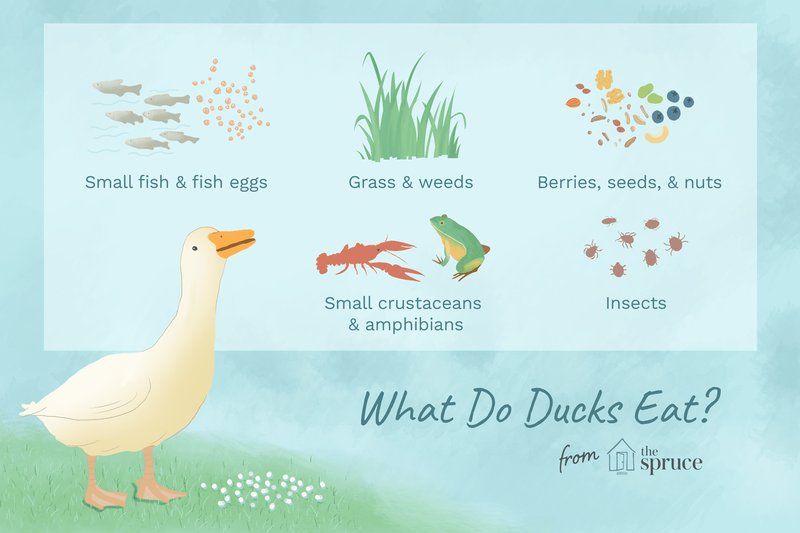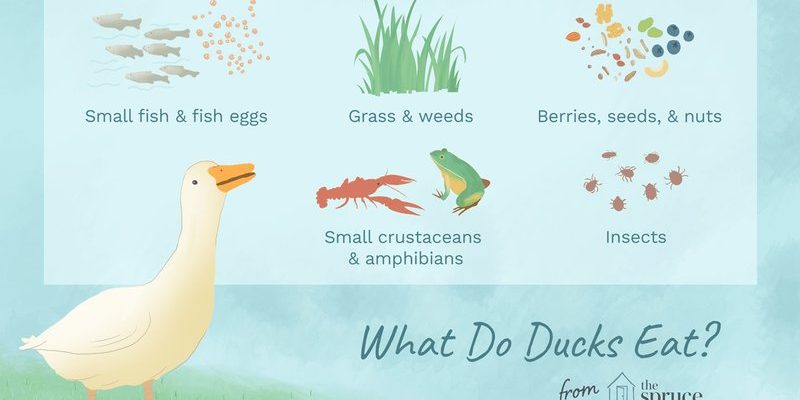
The Basics of a Duck’s Diet
To keep your ducks happy and healthy, it’s essential to understand the basics of their diet. Ducks are omnivores, which means they eat both plants and animals. This flexibility in their diet is what makes them so adaptable. Ducks love to forage for food, so giving them the opportunity to wander around and search for their meals can greatly enhance their well-being.
You might be wondering what specific items make up their meals. Here’s a quick rundown of what ducks typically enjoy:
- Grains: Ducks thrive on grains like corn, barley, and oats. These provide essential carbohydrates for energy.
- Greens: Fresh vegetables, particularly leafy greens like spinach and lettuce, are great for their nutrition.
- Insects and Worms: Protein is crucial for ducks, especially for growing ducklings. They love nibbling on bugs, slugs, and worms.
- Commercial Duck Feed: Specially formulated pelleted feed provides a balanced diet, ensuring they get all necessary nutrients.
Understanding Nutritional Needs
Ducks have specific nutritional needs that must be met for them to thrive. A well-rounded diet includes the right mix of proteins, fats, vitamins, and minerals. Let’s break it down a bit more.
Proteins are vital for growth, especially for younger ducks. Foods such as insects, worms, and commercial feeds high in protein can help meet these requirements. It’s interesting to note that while adult ducks require about 14-16% protein in their diet, ducklings need about 18-20% during their early growth phase.
Next up, we have carbohydrates. Grains like corn and wheat are excellent sources of energy that keep ducks active and playful. A diet too low in carbs might leave them lethargic, which is definitely not a good look for a duck!
Additionally, fats are necessary for overall health. A small amount of healthy fats helps ducks maintain their feathers and keep their skin healthy. You might find that some higher-quality duck feeds have added oils or meal to help with this.
Vitamins and minerals are also essential. Ducklings, for instance, need extra calcium for strong bones, while adults need a balanced amount of vitamins A, D, and E to support their immune system.
Creating a Feeding Schedule
A good feeding schedule can make a big difference in keeping your ducks healthy and happy. Ducks thrive on routine, so sticking to a schedule is important. Here’s an example to help you get started:
– Morning: Start the day with a serving of grains. Ducks can eat about 1/4 to 1/3 of a cup per bird.
– Afternoon: Offer some fresh greens. You could give them lettuce, kale, or even chopped fruits like berries.
– Evening: Provide a portion of commercial duck feed. This should be around 1/4 of their daily intake for adult ducks.
Here’s the thing: you don’t want to over-feed your ducks. Obesity can be an issue, leading to health problems. Pay attention to their body condition and adjust portions as necessary. Watching them eat happily is one of the most rewarding parts of duck parenting!
Feeding Ducklings vs. Adult Ducks
When it comes to ducklings, their dietary needs are somewhat different from those of adult ducks. Ducklings require more protein to support their rapid growth. As mentioned earlier, they should get around 18-20% protein.
During the first few weeks of life, offer a high-quality starter feed that’s specifically formulated for ducklings. This will ensure they receive all the right nutrients. After about four weeks, you can start transitioning them to the adult feed, which will typically have slightly lower protein content.
Don’t forget about hydration! Ducklings should always have access to clean, fresh water. They can drown if they aren’t careful, so be sure to provide shallow bowls that allow them to drink safely.
Common Mistakes to Avoid
Feeding ducks sounds simple, right? But there are a few common mistakes that even seasoned duck owners make. Let’s take a look at some of these so you can avoid them:
1. Feeding Too Much Bread: While ducks may love bread, it’s not nutritionally beneficial and can lead to health problems. It’s best to avoid giving them bread altogether.
2. Ignoring Fats and Proteins: Ducks need a balanced diet, so neglecting proteins or fats can hinder their growth and overall health. Don’t shy away from including protein-rich snacks.
3. Overlooking Clean Water: Ducks love water, but they need it for drinking as much as playing. Always make sure they have access to clean water, and clean their water containers regularly.
4. Not Adjusting Diet Seasonally: Ducks may need different diets in winter compared to summer. In colder months, they might need more calories, so adjust their feed accordingly.
Feeding ducks is both an art and a science, but with a little knowledge and effort, it can be a fulfilling experience. By understanding what ducks eat and sticking to a solid feeding schedule, you’ll help ensure they lead long, healthy lives. From grains to greens and everything in between, the right balance is key.
So, whether you’re feeding a flock in your backyard or just aiming to know more about these charming birds, remember that variety, nutrition, and routine play a crucial role. Happy duck feeding!

